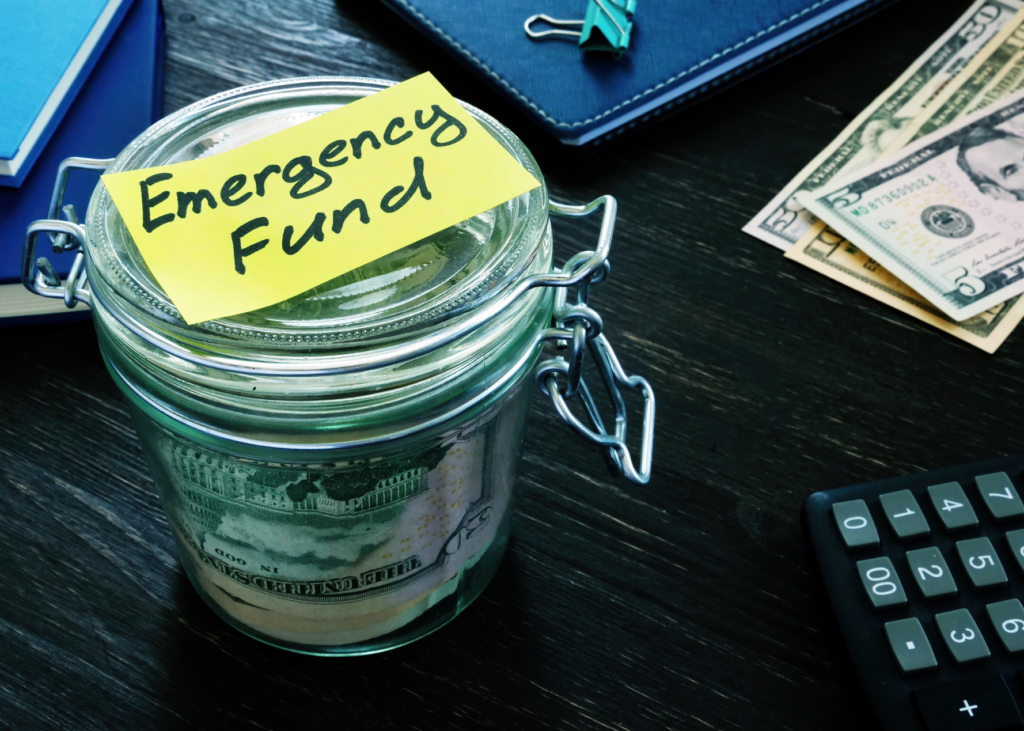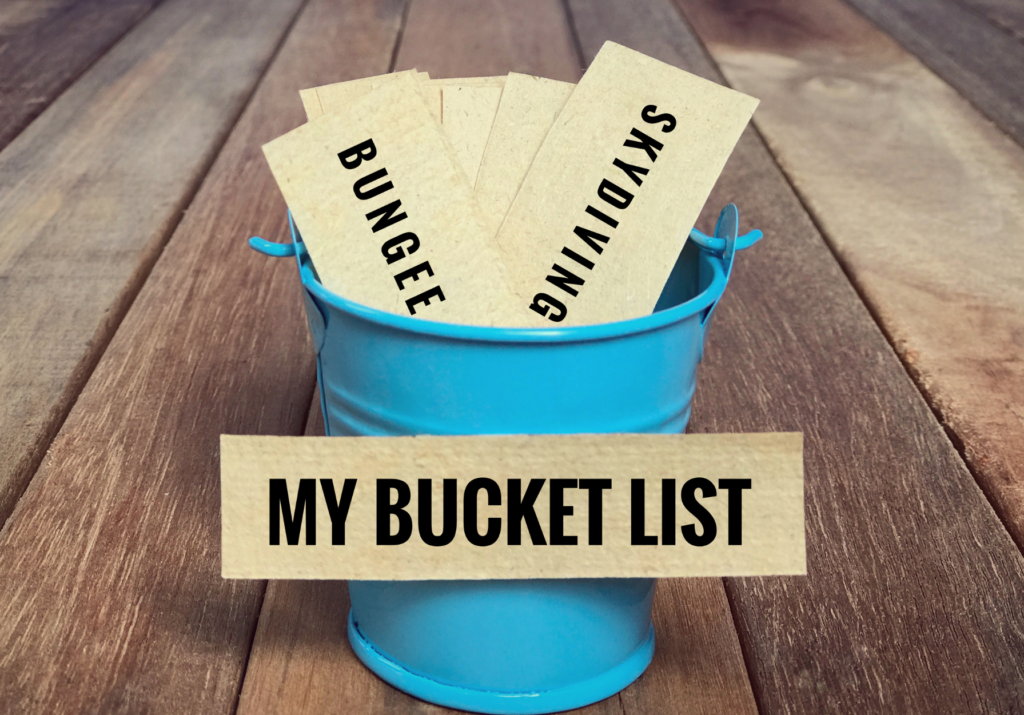What To Do With Extra Money: 10 Smart Ideas You Can Consider

When you buy something through one of the links on our site, we may earn an affiliate commission.
We have to work hard to earn every single penny in our accounts. But there are fortuitous times when we come into some extra money. We may receive a bonus at work, a monetary gift from a loved one, or a sudden spike in success in a business venture. So here's what to do with extra money when you find yourself in such a situation.
These 10 ideas range from practical and prudent to more fun and indulgent, but all help to extend the value and potential of your extra funds.
So, let's dive in and explore how you can make the most out of your resources so that they start working for you.
Contents
What To Do With Extra Money? Here are 10 Options
If you don't know what to do with extra money when it comes your way, these 10 ideas will provide you with ways to make sure you're getting the most out of it.
1. Pay Off Debts

Using your extra money to pay off debts is a wise and prudent decision. This is especially true if you have high-interest debt, such as outstanding credit card debt. While this may not sound like the most exciting way to use extra cash, it can actually earn you money in the long run.
Here's an example of how powerful this can be:
Say you have $5,000 of credit card debt with an annual interest rate of 20%. By solely making the minimum payments, you may find yourself trapped in debt for more than 25 long years. As a result of the compounding interest, the total amount you pay would exceed $14,000.
Now, let's say you received a bonus or tax refund of $5,000. If you use this amount to pay off your credit card debt immediately, you will save over $9,000 in interest payments that you would have had to pay if you only made the minimum payments.
By saving $9,000, you've almost doubled your initial excess cash!
Here are a few additional benefits of paying off at least a portion of your high-interest debt:
- You'll have less stress and worry about your finances
- Your credit score will improve, making it easier to obtain loans or lower interest rates in the future
- Compounding interest will slow down if you pay more than the minimum payments, potentially saving you thousands of dollars in the long run.
So, while it might be tempting to use extra money for a vacation or to buy a new gadget, using it to pay off debts can have significant long-term financial benefits.
2. Build an Emergency Fund

Setting up an emergency can give you peace of mind in a chaotic financial world. Even a few thousand dollars can make the difference between being able to handle an unexpected expense and getting into debt.
For instance, imagine your car suddenly breaks down and needs a $1,000 repair. Instead of charging it to a credit card and accruing interest payments, you can use your emergency fund.
Financial experts often recommend having at least 3 to 6 months' worth of expenses saved up in an emergency fund. This might seem like a daunting task, but every little bit counts.
You have many options when it comes to saving your emergency fund money:
- Traditional checking accounts
- Traditional savings accounts
- High-yield savings accounts
- Certificate of Deposit (CDs)
- Money Market Accounts
Remember, the goal is to grow this fund over time, so regularly investing extra cash into it is essential. You can achieve your financial goals by putting away just $100 per month.
3. Start a Retirement Account

Investing in your retirement is an excellent way to use extra cash and set yourself up for long-term success. By contributing to retirement accounts, you're securing your financial future and potentially reducing your current taxable income.
Here are a few types of retirement accounts:
- 401(k) or 403(b): These are employer-sponsored stock market retirement accounts. If your employer matches contributions, it's like getting free money towards your retirement.
- IRA (Individual Retirement Account): This is for anyone earning income. There are two types: Traditional IRAs, which may provide a tax deduction now, and a Roth IRA, where money grows tax-free for future use.
- SEP IRA or Solo 401(k): These are for self-employed individuals or small business owners.
For example, if you have extra funds, instead of letting them sit in low-interest bank accounts, you could invest in a diversified portfolio of individual stocks, bonds, or mutual funds within your retirement account. Over time, these investments often yield a higher return, especially as interest rates rise.
Consider consulting with a financial advisor or financial planner to ensure these strategies align with your overall financial freedom goals.
4. Invest in Real Estate

Investing in real estate is an exciting option for using a sudden influx of extra money. It can help build wealth over time and provides an opportunity to earn more money through rental income.
If you can't afford a property or down payment with your extra cash, you can still get started with renting real estate.
One interesting method is Airbnb arbitrage, which involves renting properties and then subletting them on Airbnb at a higher price. This strategy allows you to enter the real estate market without needing a large upfront investment.
Another option is investing in Recreational Vehicles (RVs). These can be used for short-term rentals on Airbnb or other rental platforms like Outdoorsy. You could try your hand at flipping RVs for profit.
It's important to remember that any investment comes with risk, so it's crucial to do your research and consult with professionals before investing in real estate.
5. Donate to Charity

Using extra money to give back to your community is a rewarding way to use it. It's been scientifically proven that being generous activates the pleasure centers of our brain and has numerous benefits for our well-being.
Whether you donate to a local charity, volunteer your time, or contribute to a cause close to your heart, giving back can make a positive impact on others and yourself.
Plus, donations to registered charities may be tax-deductible, so not only are you making a difference in the world, but you're also potentially reducing your taxable income.
6. Start a Business

Starting a business is a fantastic way to use extra money, offering the potential for more financial growth and independence. It requires a solid financial plan, an understanding of your financial situation, and often, enough money to cover initial startup costs.
Some great business ideas for beginners include:
- Freelance work (writing, graphic design, virtual assistance)
- E-commerce (selling products or services online)
- Social media influencer/blogger
- Tutoring or coaching
- Buying an existing business (platforms like MotionInvest or Empire Flippers allow you to buy established websites, skipping the startup phase)
There are plenty of helpful tools that can help you develop your business quickly and affordably:
- Business Content Generation: The AI tool Jasper can help generate business content quickly, from marketing copy to blog posts.
- Visual Marketing Materials and Branding: Canva is a user-friendly tool for creating stunning graphics that will make your brand stand out.
- Courses and Training Programs: There are several reasonably-priced courses that can help you learn a new skill set quickly. For example, the Etsy Domination Course can help you learn e-commerce tools, while the Authority Site System can teach you how to build a profitable website.
Want to start a business but have no ideas?
From service business ideas to craft business ideas, we can help you get started and turn your extra money into a lucrative business venture that can build wealth.
7. Try Out a Side Hustle

If starting a full-fledged business seems daunting, you can still use your extra cash to invest in a side hustle. A side hustle is any work or service that you do outside of your regular job to earn extra income.
Some popular side hustles include:
- Affiliate Marketing: Joining affiliate programs and promoting products is an excellent way to earn passive income.
- Freelancing: Offering your skills and services on freelance platforms like Upwork or Fiverr can bring in extra money on the side.
- E-commerce: Setting up a Shopify store or selling products on marketplaces like Etsy or Amazon can turn into a profitable side business.
- Selling Items: Sites like eBay and Facebook Marketplace allow you to buy and sell items and make a profit.
- Apps: Plenty of side hustle apps, like Uber, DoorDash, or TaskRabbit, allow you to earn extra money in your free time.
Side hustles tend to be smaller investments than businesses and can be a great way to diversify your income streams.
The return on your investment will come more quickly, too, freeing up even more extra cash.
8. Invest in Your Home

If you're a homeowner, you know that there's always something that needs fixing, updating, or renovating. Why not use your extra money to invest in your home and increase its value?
Some renovation projects that offer a good return on investment include:
- Kitchen Remodelling: Updating your kitchen can increase both the functionality and value of your home.
- Updating Your Color Scheme: Putting on a fresh coat of paint can instantly freshen a space.
- Bathroom Renovations: Adding an extra bathroom or updating existing ones is always a good idea.
- Landscaping: Curb appeal matters, so investing in landscaping and outdoor upgrades can boost your home's value.
You could also consider energy-efficient upgrades like insulation, solar panels, or smart home technology to save money on utility bills in the long run.
If you need some time to decide what home upgrades you'd like to make, put your extra cash in a high-yield savings account so it will accrue interest as you figure out the details of your renovation.
Investing in your home not only increases its value but also improves your living space and quality of life. It's a win-win situation!
9. Invest in Your Education

Investing in education can have long-term benefits for your career and financial growth. And it can also just be plain fun and a great way to broaden your horizons.
Options for investing in education include:
- College/University: Pursuing a degree or furthering your education can lead to higher-paying job opportunities.
- Online Courses: There are plenty of affordable online courses available that can help you develop new skills, such as coding, graphic design, or marketing.
- Certifications: Earning professional certifications can also increase job prospects and income potential.
- Personal Endeavors: You could also use your extra money to take up a new hobby, learn a new language, or travel for cultural immersion and personal growth.
Learning something new can open doors and provide valuable knowledge and experiences, making it a worthy investment.
10. Check Off a Bucket List Item

Why not use your extra money to splurge on something you've always wanted to do? Life is short, and sometimes, it's worth spending a little extra cash on an experience or item that brings joy and fulfillment.
Some bucket list ideas include:
- Traveling: Exploring new places, trying different foods, and experiencing different cultures can be life-changing.
- Purchasing Your Dream Item: Whether it's a fancy car, designer handbag, or expensive piece of artwork, investing in something you've always wanted can bring happiness every time you see or use it.
- Investing in Experiences: Activities like skydiving, bungee jumping, or attending a concert or sporting event can create unforgettable memories.
Checking off a bucket list item can bring joy and fulfillment, making it a worthwhile investment.
It's important to prioritize experiences and happiness in life, and using your extra money for this purpose is never a bad idea.
Final Thoughts: 10 Things To Do With Extra Money
Remember, the best investment is one that brings you a return in happiness, growth, and overall life satisfaction.
Whether it's starting a business, engaging in a side hustle, renovating your home, enhancing your education, or fulfilling a bucket list item, all these investment paths are avenues towards growth, discovery, and fulfilment.
Want to learn step-by-step how I built my Niche Site Empire up to a full-time income?
Yes! I Love to Learn
Learn How I Built My Niche Site Empire to a Full-time Income
- How to Pick the Right Keywords at the START, and avoid the losers
- How to Scale and Outsource 90% of the Work, Allowing Your Empire to GROW Without You
- How to Build a Site That Gets REAL TRAFFIC FROM GOOGLE (every. single. day.)
- Subscribe to the Niche Pursuits Newsletter delivered with value 3X per week
My top recommendations
















